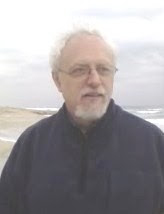
It is Friday, January 30, 2009 and here in Louisville, we are still suffering through the aftermath of an ice storm that hit here earlier this week. Actually, to be accurate it wasn't an ice storm, it was a snowstormicestormsnowstorm.
The ferociousness of this storm lives on, and may continue through the weekend. There is something about this storm that makes it seem almost alive...and God-like.
I have been reading a book about Hinduism that deals in a most interesting way with the idea of a God-like presence in natural phenomena.
At the beginning of a chapter entitled "God" in The Essentials of Hinduism, Swami Bhaskarananda has this to say about how some early inhabitants of India dealt with the idea of Deity:
"At a very early stage of their civilization the ancestors of the Hindus are believed to have been polytheistic. Earth, water, fire, wind, sky, sun, dawn, night, thunderstorm---all were deified and adored as gods."
That theology is interesting in itself, but what Swami Bhaskarananda writes next is even more fascinating: "But while being praised by the Vedic hymns, each of these gods was addressed or referred to as the Supreme God, the Lord of all gods, and the Creator of the Universe. According to the famous German Indologist Max Muller, the earliest ancestors of the Hindus were, therefore, not polytheistic; they were henotheistic." *[the emphases here are mine, not the author's]
This ability that our primitive ancestors had to see each calamity or force they encountered in turn as the supreme God when they confronted it, shows a real sophistication in fear.
When devastated by an earthquake, they could sense the supreme power of what was happening to them. The same was true when their homes were reduced to ashes by a fire, or their communities washed away by a tsunami or a Typhoon.
I have felt that kind of power two times in the last few weeks.
Obviously the storm we are living through at the moment seems so overwhelming (at one point 690,000 homes in Kentucky were without power) that it feels like God at work.
The same thing is true of war. The ferociousness of the recent conflict in the Middle East seemed to me to be so powerful, so all-consuming that it elicited the kind of awe in me that was spoken of in the Bible as 'the fear of God' (as in, "that'll put the fear of God into you.")
Generals frequently point out that whoever we are, when we resort to war, we have failed. Failed to find a way to live together. Failed to find a way to peacefully resolve our differences.
When war begins anywhere, it is alive. It is God-like in its fury. Not the God I worship. But certainly one I fear.
______________________________________________________________
______________________________________________________________
*According to Webster's New Universal Unabridged Dictionary, henotheism, means (1) a religious doctrine attributing supreme power to one of several divinities in turn..."



